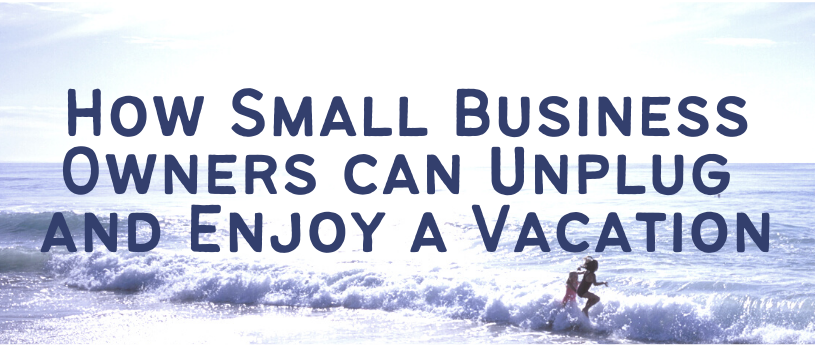If you are like me, you are a busy entrepreneur and sometimes find it hard to take time off because there is always so much to do. But you and I both know our health and wellbeing are important and a vacation can help us recharge.
And I’m not talking about going away but still checking e-mail, doing client work, attending meetings or making phone calls most of the day. What can we do to be able to truly vacation and not worry about what is happening while away?
According to an article published by The Hartford, skipping vacation is a risk to your health. A survey of small business owners revealed that 55% of them never travel without their phone so they can keep tabs on their business even while on a trip.
A 2018 US Travel Association article stated Americans take fewer vacations than workers in other countries with 52% having accumulated unused vacation totaling 705 million days and 212 of those days forfeited. And statistics shared in the Framingham Heart Study show that men who didn’t take time off for several years were 30% more likely to have a heart attack than those who took at least one week’s vacation a year. The results for women were even worse—those who vacationed only once every six years or less were almost eight times more likely to suffer from heart disease or have a heart attack than women who took time off at least twice a year.
If you want to protect your health by planning a vacation, what can you do to prevent work from creeping in? The author of the Hartford blog, Felicia Sullivan, gives the following tips:
Establish a Vacation Pre-Game Plan
Alert your staff and key contacts about your vacation plans and need for coverage while you are away. Discuss what needs to be done and what could occur while you are gone and plan how those will be managed in your absence. Delegate and create backup plans.
Be clear about when staff should reach out to you. Give them your availability and the situations for which you should be contacted. Empower your staff to run the company and be able to make decisions so they don’t feel the need to contact you.
Toe the Line while You’re Away
You need to establish boundaries and stick to them. If you feel you must check in, set times you will do so to stay on top of what is happening, but don’t get involved in too much work. Stay away from your inbox or you may get sucked back into responding to messages and doing work when you should be relaxing.
Turn off your notifications so you aren’t aware when messages are sent to you. And have an accountability partner help you lay out your boundaries and create a plan so you stick to them.
Only Respond to Real Fires
Your staff is capable of handling most situations, and few are true emergencies. Understand there is a difference between staying in touch and jumping in to solve problems. Take notes on what is working and not working and review with your employees upon your return. Track tasks that will require your attention once you are back at work.
Keep the number of people you interact with very small, and only get involved when you absolutely must.
Gear Up For Your Return
Before jumping into tasks that are calling for your attention, prioritize the work that will need to be done your first day back. Scan your inbox and delete, delegate and deal with what you must. Note which tasks require your attention as soon as possible and delete anything your staff can handle (or has already done so in your absence).
Check in with your key staff and find out how things went while you were vacationing. You want to deal only with urgent matters your first day back.
If you haven’t taken time off in ages, now is the time to plan your trip! Whether it’s a staycation, or you travel to a place you’ve always dreamed of visiting, set a plan to allow you to enjoy your time off without being attached to your computer or phone while you are away! Let me know in the comments when you’ve planned a trip and what you’ll be doing! I’d love to hear about it.
